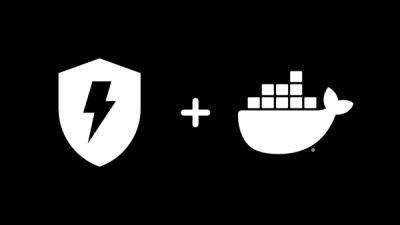pykeepass



This library allows you to write entries to a KeePass database.
Come chat at #pykeepass:matrix.org on Matrix.
Installation
sudo apt install python3-lxml
pip install pykeepass
Quickstart
General database manipulation
from pykeepass import PyKeePass
>>> kp = PyKeePass('db.kdbx', password='somePassw0rd')
>>> kp.entries
[Entry: "foo_entry (myusername)", Entry: "foobar_entry (myusername)", ...]
>>> group = kp.find_groups(name='social', first=True)
>>> group.entries
[Entry: "social/facebook (myusername)", Entry: "social/twitter (myusername)"]
>>> entry = kp.find_entries(title='facebook', first=True)
>>> entry.password
's3cure_p455w0rd'
>>> entry.otp
otpauth://totp/test:lkj?secret=TEST%3D%3D%3D%3D&period=30&digits=6&issuer=test
>>> entry.notes = 'primary facebook account'
>>> group = kp.add_group(kp.root_group, 'email')
>>> kp.add_entry(group, 'gmail', 'myusername', 'myPassw0rdXX')
Entry: "email/gmail (myusername)"
>>> kp.save()
Finding and manipulating entries
>>> kp.add_entry(kp.root_group, 'testing', 'foo_user', 'passw0rd')
Entry: "testing (foo_user)"
>>> group = kp.find_groups(name='social', first=True)
>>> entry = kp.add_entry(group, 'testing', 'foo_user', 'passw0rd')
Entry: "testing (foo_user)"
>>> kp.save()
>>> kp.delete_entry(entry)
>>> kp.move_entry(entry, kp.root_group)
>>> kp.save()
>>> from datetime import datetime, timezone
>>> entry.ctime = datetime(2023, 1, 1, tzinfo=timezone.utc)
>>> entry.touch(modify=True)
>>> entry.save_history()
Finding and manipulating groups
>>> kp.groups
[Group: "foo", Group "foobar", Group: "social", Group: "social/foo_subgroup"]
>>> kp.find_groups(name='foo', first=True)
Group: "foo"
>>> kp.find_groups(name='foo.*', regex=True)
[Group: "foo", Group "foobar"]
>>> kp.find_groups(path=['social'], regex=True)
[Group: "social", Group: "social/foo_subgroup"]
>>> kp.find_groups(name='social', first=True).subgroups
[Group: "social/foo_subgroup"]
>>> kp.root_group
Group: "/"
>>> group = kp.add_group(kp.root_group, 'social')
>>> group2 = kp.add_group(group, 'gmail')
Group: "social/gmail"
>>> kp.save()
>>> kp.delete_group(group)
>>> kp.move_group(group2, kp.root_group)
>>> kp.save()
>>> from datetime import datetime, timezone
>>> group.ctime = datetime(2023, 1, 1, tzinfo=timezone.utc)
>>> group.touch(modify=True)
Attachments
>>> e = kp.add_entry(kp.root_group, title='foo', username='', password='')
>>> binary_id = kp.add_binary(b'Hello world')
>>> kp.binaries
[b'Hello world']
>>> a = e.add_attachment(binary_id, 'hello.txt')
>>> a
Attachment: 'hello.txt' -> 0
>>> a
Attachment: 'hello.txt' -> 0
>>> a.id
0
>>> a.filename
'hello.txt'
>>> a.data
b'Hello world'
>>> e.attachments
[Attachment: 'hello.txt' -> 0]
>>> kp.attachments
[Attachment: 'hello.txt' -> 0]
>>> kp.find_attachments(filename='hello.txt')
[Attachment: 'hello.txt** -> 0]
# delete attachment reference
>>> e.delete_attachment(a)
# or, delete both attachment reference and binary
>>> kp.delete_binary(binary_id**
OTP codes
>>> e = kp.find_entries(otp='.*', regex=True, first=True)
>>> import pyotp
>>> pyotp.parse_uri(e.otp).now()
799270
Tests and Debugging
Run tests with python tests/tests.py or python tests/tests.py SomeSpecificTest
Enable debugging when doing tests in console:
>>> from pykeepass.pykeepass import debug_setup
>>> debug_setup()
>>> kp.entries[0]
DEBUG:pykeepass.pykeepass:xpath query: //Entry
DEBUG:pykeepass.pykeepass:xpath query: (ancestor::Group)[last()]
DEBUG:pykeepass.pykeepass:xpath query: (ancestor::Group)[last()]
DEBUG:pykeepass.pykeepass:xpath query: String/Key[text()="Title"]/../Value
DEBUG:pykeepass.pykeepass:xpath query: String/Key[text()="UserName"]/../Value
Entry: "root_entry (foobar_user)"




